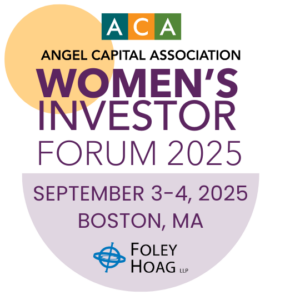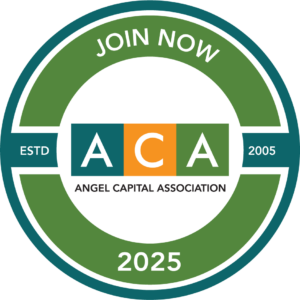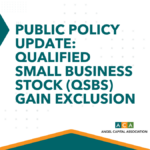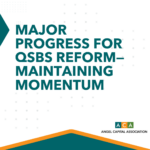Angel Insights Blog

Thursday, May 09, 2013
Two Important Accredited Investor Issues Many Angels Don’t Hear About (But Could Change Your Investing)
Yesterday I was on a conference call with several angel investors talking about public policy two issues that could have a huge impact on angel investors – and really the startups angels support. It strikes me that very few angel investors know these issues, so I’d like to make sure a few more people know about them. Both could change who qualifies to be an accredited investor and make it more difficult for investors to verify their accredited status.
SEC Rulemaking on General Solicitation in JOBS Act
Many of us know about the JOBS Act, passed a year ago to provide more access to capital for small businesses and therefore more jobs. Much of the Act hasn’t been implemented yet because detailed rules need to be set by the SEC. Most of the conversation has been about equity crowdfunding, but there is another issue that may have a much bigger impact on angel funding: how your accredited status is verified.
Currently, angels self-certify their accredited status, and this has worked well for decades. Entrepreneurs can raise the capital they need in a private environment with almost no fraud. Even a 2012 SEC study confirms this.
However, with some issuers “going public” by advertising their investment opportunities, Congress wanted to ensure that the investors in these solicited deals are really accredited investors and required the SEC to set rules for “reasonable steps to verify” accredited investors. The SEC published some draft rules on this last August, but final rules have not been. ACA has been among many that have commented on these rules and how they could actually lead to less investment, so the exact opposite of what Congress wanted.
So far, it looks like the SEC will not promote the worst case scenario – requiring investors to provide their tax returns or wealth statements to issuing entrepreneurs. Could you imagine how quickly that would stop entrepreneurial financing? However, the draft SEC rules also didn’t provide much clarity about verification processes, leading many attorneys to advise their clients not to invest in advertised offerings because there are no “safe harbors” for issuers or investors with huge liabilities for all parties.
As Jean Peters said in recent Congressional testimony, ACA recommends that the final rule establish safe harbors so that startups and accredited investors can act with confidence and avoid additional cost and complexity in seeking a transaction. Safe harbor provisions should encourage the disciplined investing that occurs among angel groups.
There is somewhat promising news. At last fall’s SEC Forum on Small Business Capital Formation, the advisory group unanimously recommended that “membership in a reputable angel group,” be established as a safe harbor to shield fledgling startups from the pending “issuer verification” storm. We encourage the SEC to take this approach, and suggest that the professionalism of ACA membership should serve as a benchmark to meet this standard. The report from this meeting, published last week by the SEC, included as the number one priority for exempt securities offerings, certification of accreditation by third parties including angel groups. Here’s hoping the SEC accepts this recommendation!
Accredited Investor Definition
Many angels remember early versions of the Dodd-Frank Act in 2010, in which the thresholds for wealth and income would have been adjusted for inflation – increasing the net worth requirement from $1 million to an estimated $2.5 million and income requirements from $200,000 to $450,000. From data from an academic study, we knew this would have wiped out about 60 percent of investors in angel groups on the net worth change alone.
The final Dodd-Frank act was much improved, keeping the threshold numbers the same, although investors could no longer include the value of their primary residence as part of their net worth. The act also included a less talked about requirement: a government study of “appropriate criteria for determining the financial thresholds or other criteria needed to qualify for accredited investor status and eligibility to invest in private funds” within three years. This study is being conducted by the General Accounting Office (GAO) and should be delivered to Congress this summer.
There are organizations fighting to ensure that the financial thresholds for accredited investors are increased (now and really every year). Other complexities could be added as well. We think that the current definitions work very well and making any increases would damage the economy because less capital would be invested in job creating small businesses. ACA is working to make sure that those doing the study and decision makers know how important it is to keep the definitions the same – if not lowered. This keeps angels investing in innovative startups and helps those companies flourish, and in an environment with very few investor “bad actors”.
Please make sure the entrepreneurs and investors you work with know about both of these issues. ACA is always happy to provide information and materials, and to include your voice in the discussions. If our economy is going to continue to grow, we need great new businesses and investors to keep up their good work!
Tags: Congress







